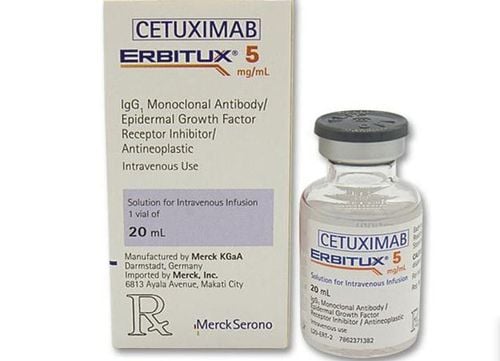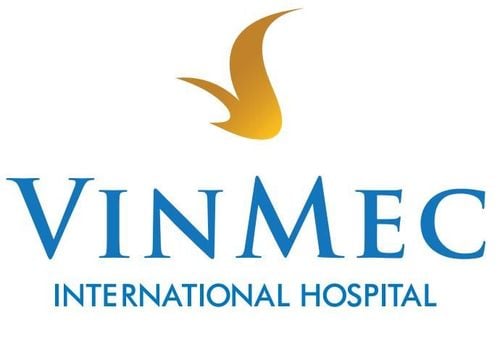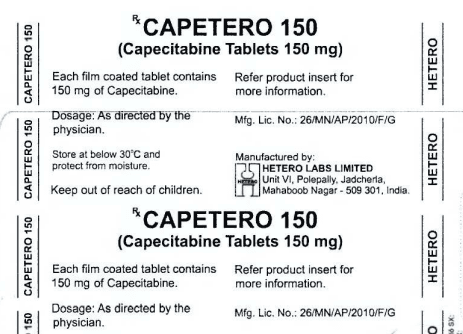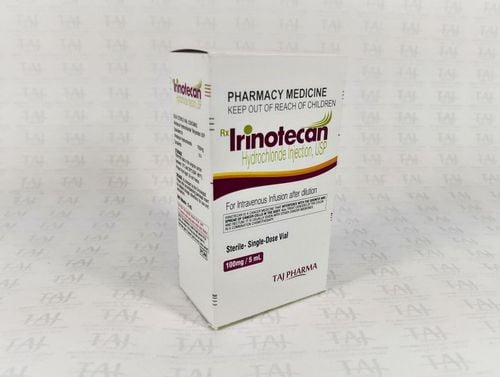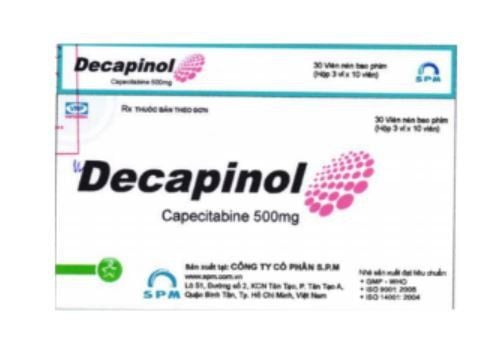This is an automatically translated article.
The article was written by Dr. Pham Thi Thu Huong - Head of Gastroenterology - Hepatobiliary - Endoscopy - Vinmec Times City International General HospitalThe primary purpose of colorectal cancer screening is to avoid mortality from colorectal cancer. Screening tests can help find UT at an early and treatable stage. Screening also helps prevent cancer by finding and identifying precancerous lesions and treating these lesions before they progress to malignancy.
Adults should have cancer screening starting at age 50 or earlier depending on their risk factors. There are several screening tests, each of which has its pros and cons. The most appropriate test is selected based on the patient's performance and their risk factors for colorectal cancer.
1. Why Screening for Uterine Cancer?
Most colorectal cancers develop from precancerous polyps. Polyps develop from the lining of the colon. Polyps can be identified by endoscopy (colonoscopy or sigmoidoscopy), or CT colonography. And a simple initial screening can be done with a stool test.
There are two most common polyp types identified as adenomatous polyps and hyperplastic polyps. Adrenal polyps can develop into cancer. In most cases, the process of polyps progressing to cancer takes at least 10 years.
Screening tests for colorectal cancer can identify polyps and cancerous lesions. If polyps are found, they will be removed to prevent cancer from developing. Regular screening and removal of polyps reduces the risk of colorectal cancer (up to 90% for colonoscopy).
Likewise, if a cancerous lesion is found, it can be cured if it is at an early stage. Early diagnosis of cancer increases the chances of successful treatment and reduces cancer mortality.

Phần lớn ung thư đại trực tràng đều phát triển từ polyp tiền ung thư
2. Risk factors for colorectal cancer
The risk of colorectal cancer increases in the elderly, and the majority of colorectal cancers occur in people over 50 years of age. That's why experts recommend screening for everyone over the age of 50, even those without risk factors. Some people have factors that increase the risk of colorectal cancer, it is recommended to start screening earlier.
3. Risk factors that may influence screening recommendations
Some conditions significantly increase the risk of CRC. People with these factors are recommended to be screened earlier than those at average risk.
3.1 Familial adenomatous polyposis (FAP) gene syndrome – FAP is an uncommon genetic disease. People with this disease have hundreds (or more) of polyps that develop in the lumen of the colon from adulthood. Nearly all people with this condition will develop colorectal cancer in their lifetime, and most occur before the age of 45. Lynch syndrome – Lynch syndrome is also an inherited disease that increases the risk of colorectal cancer. This disease is more common than FAP, with at least 1/20 cases of colorectal cancer. About 70% of people with Lynch syndrome will develop colorectal cancer by age 65 or earlier. People with Lynch syndrome are also at risk for other types of cancer, including cancers of the uterus, stomach, bladder, kidney, and ovaries. There are several other rare genetic diseases that also increase the risk of CRC. If a family member has any of the diseases listed above, they should be tested for genetic abnormalities.

Những người có yếu tố nguy cơ cần tiến hành sàng lọc để sớm phát hiện ung thư đại trực tràng
3.2 Family or personal history of colorectal cancer or polyps People with previous colorectal cancers are at high risk of developing new colorectal cancers. People with adenomatous polyps before the age of 50 also have an increased risk of developing colorectal cancer.
In the family with a family member (father, mother, sibling or child) with colorectal cancer or colorectal polyps, family members are considered to be at high risk of colorectal cancer. The risk may increase depending on the number of people in the family and the age at which the cancer or polyps were found.
3.3 Inflammatory bowel disease (IBD) People with Crohn's disease or ulcerative colitis have an increased risk of colorectal cancer. The degree of risk depends on the degree of inflammation and duration of illness. Generalized colitis and disease duration of 10 years are associated with a higher risk of colorectal cancer.
4. Habits of life
There are some lifestyle habits that are also considered to increase the risk of developing colorectal cancer. These include:
Diet high in fat, high in red meat and low in fiber Habits of sedentary, sedentary lifestyle Smoking smoking Alcohol use Obesity Changing these risk factors can help reduce the risk of colorectal cancer, moreover will improve the general health status. However, the presence of these risk factors does not affect the recommendation of when to initiate colorectal cancer screening.

Lối sống không lành mạnh làm tăng nguy cơ mắc ung thư đại trực tràng
5. Factors that can reduce the risk
Changing your diet, increasing exercise, and stopping alcohol and smoking can help reduce your risk of colorectal cancer. Use of aspirin for the prevention of cardiovascular disease may also reduce the risk of colorectal cancer.
Vinmec International General Hospital is implementing a Package of Screening and Early Detection of Colorectal Cancer, implemented by a team of experienced doctors and nurses in the field of colorectal cancer diagnosis and treatment. colonoscopy, with the support of a system of modern technological equipment, a full range of specialized means to diagnose the disease and stage it before treatment such as: Endoscopy, CT scan, PET-CT scan, MRI, Mammogram, histopathological diagnosis, gene-cell testing, ... help detect colon cancer early even when there are no symptoms.
Vinmec International General Hospital is one of the hospitals that not only ensures professional quality with a team of leading medical doctors, modern equipment and technology, but also stands out for its examination and consultation services. comprehensive and professional medical consultation and treatment; civilized, polite, safe and sterile medical examination and treatment space.
Please dial HOTLINE for more information or register for an appointment HERE. Download MyVinmec app to make appointments faster and to manage your bookings easily.




